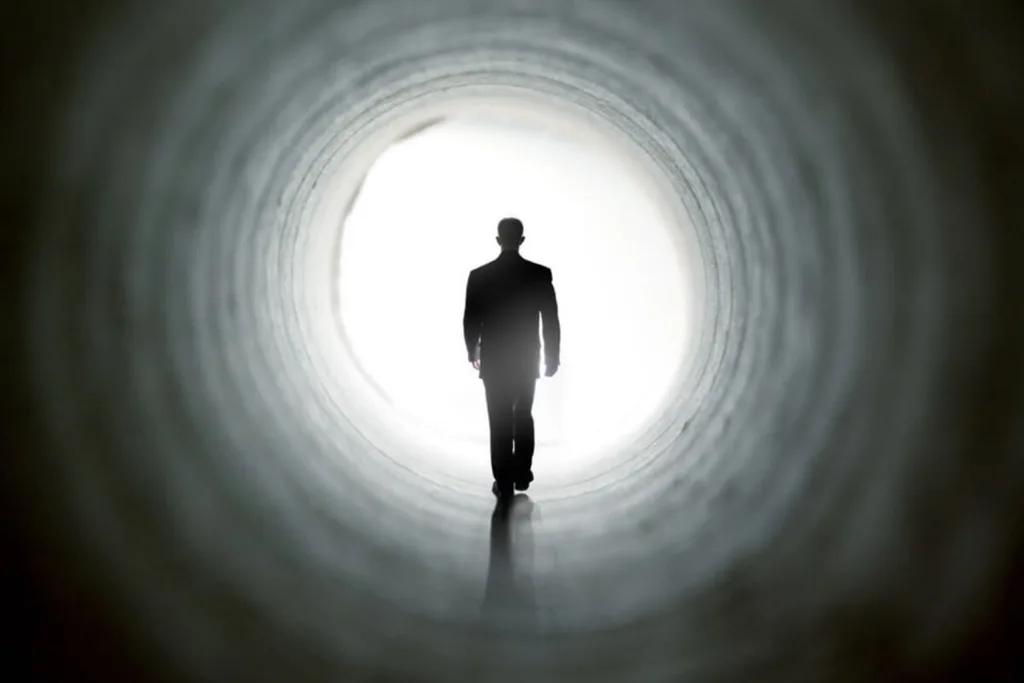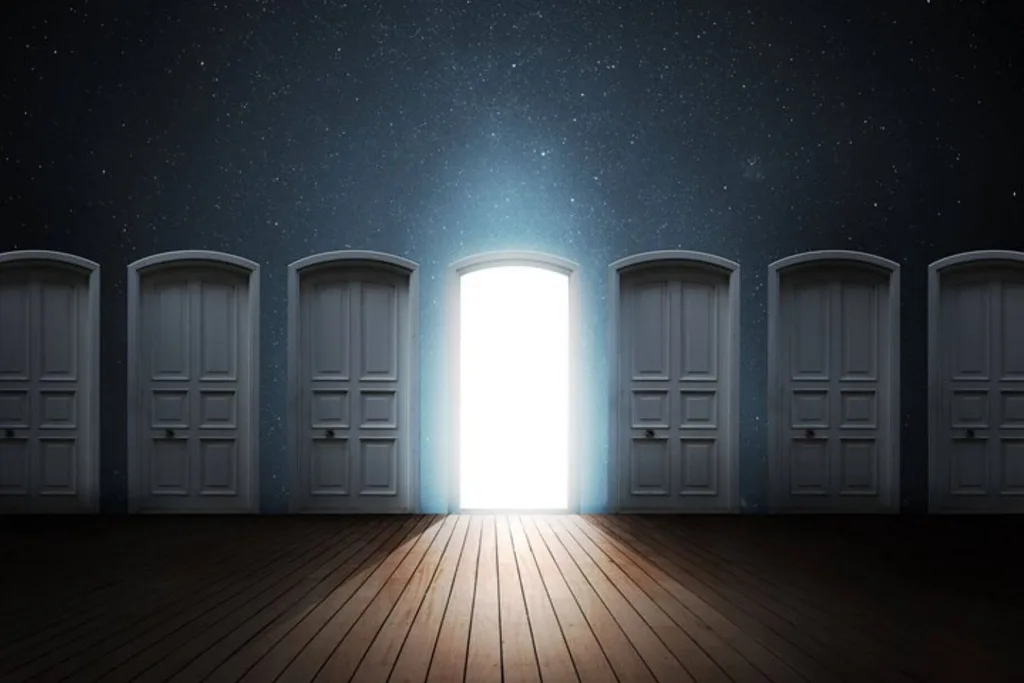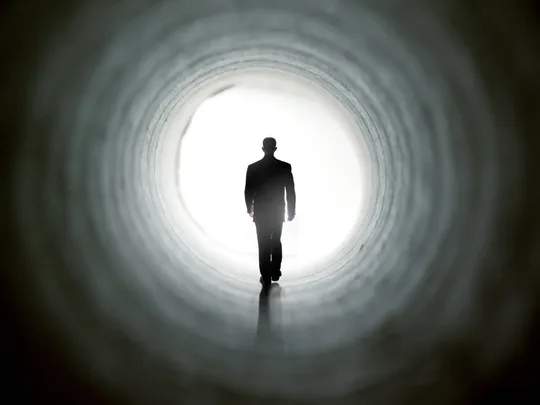What is it like to die? That question has fascinated philosophers, religious leaders, and scientists alike for millennia.
WATCH BELOW: Surviving Death | Official Netflix Trailer
Death is scary because it’s a great unknown. After all, no one comes back from the dead to tell you what it’s like on the other side. But with the advent of improved medicine, a select few people have come back from the brink of death and lived to tell the tale.
So, if you want to satisfy your morbid curiosity about death, this might be the article you’ve been waiting to read.

What does it feel like to die?
Based on the accounts of people who have experienced death and then were revived afterward, death has several feelings associated with it.
As you die, it may feel like you’re dreaming, and you may start losing your senses and natural urges such as hunger and thirst.
What is death?
Death has had many meanings throughout the years across many cultures.
The ancient Egyptians believed that death was merely a temporary interruption in life rather than the total end of it, while the Greeks of Antiquity believed that the soul left the body during death in a puff of air.
Even the medical definition of death has changed over the years, with the goalposts moving further away as medical techniques improve.
In the 1600s, death occurred when someone stopped breathing. However, in 1952, an anaesthetist was able to mechanically ventilate a polio victim when they could no longer breathe on their own.
Then, in the 1800s, death became the moment someone’s heart stopped beating. But in 1892, the first-ever instance of CPR was successfully performed, allowing a previously stopped heart to be restarted.
Today, clinical death can be described as the irreversible cessation of functions that are vital to life. This often follows after brain death, or irreversible damage to the brain that results in the loss of respiration and other autonomic functions. Clinical death is declared after all attempts to resuscitate a patient have failed.

What is the average life expectancy in Australia?
According to the Australian Institute of Health and Welfare, the average life expectancy in Australia is 80.9 years for men and 85.0 years for women, a figure that’s only increasing with time.
What are the most common causes of death?
Across the world, the number one and two causes of death are ischaemic heart disease and stroke, which were responsible for 16 per cent and 11 per cent of the world’s total deaths respectively in 2019. Over the past two decades, these two diseases have kept their rank as the top two leading causes of death.
Chronic obstructive pulmonary disease, lower respiratory conditions, neonatal conditions, and Alzheimer’s and other dementias are the next four most common causes of death. The top causes of death have changed a lot in the last four years, with road accidents being removed from the top ten.
In Australia, the top 5 leading causes of death are coronary heart disease, followed by the various kinds of dementia. In third place is cerebrovascular disease including stroke, then lung cancer, and finally chronic obstructive pulmonary disease. This was last updated in 2019.

What does death feel like at every stage?
Every person experiences a different sequence of feelings when they die, but there are some common experiences among the people who’ve managed to come back from the dead.
Your senses and urges begin fading
Does dying hurt? Interestingly, James Hallenbeck of Stanford University describes the first feelings of death as the loss of sensation. “First hunger and then thirst are lost. Speech is lost next, followed by vision. The last senses to go are usually hearing and touch.”
You feel like you’re in a dream
A study of 66 patients admitted to Hospice Buffalo, New York showed that many terminally ill people experience dreams or visions, especially about their deceased and living loved ones. As they inched ever closer to death, the dreams became even more vivid and frequent. It was almost as though they were headed to sleep, rather than towards death.

You might actually see a bright light
The popular image of seeing a ‘bright light at the end of the tunnel’ may actually have an explanation in biology.
When your heart stops, your brain loses its supply of oxygen from the blood, while carbon dioxide starts to build up in your body. Increased levels of carbon dioxide can lead to stress responses and visual hallucinations, which may include flashing lights.
In fact, mountain climbers suffering from low-oxygen altitude sickness have reported seeing flashing lights as well.
Whether you think you’re coming home to God or descending into hell, the light may be nothing more than your brain’s final cries for air.
You may feel extremely calm and at peace
While dying might evoke a stress response, the act itself may be very peaceful.
“It turns out to be not so bad to have a dying experience,” says Dr. Steven Laureys, who leads the Coma Science Group at the Université de Liège in Belgium. His study of people who have had near-death experiences shows that few people have negative experiences in the moments leading up to death, and most have in fact felt an “overwhelming feeling of peacefulness.”

A 2018 thread on reddit about people who have experienced clinical death revealed similar sentiments.
One redditor relayed the experience of his friend, describing it as “being surrounded by darkness and floating with some sort of warm gel-like substance covering her.” He added that she never wanted to leave.
Another redditor described the experience. “She said it was the most amazing feeling she’s ever experienced. It was blank black nothing, but that was perfectly fine, and she felt a comfort she can’t even explain. She remembers being angry at the man working on her when she finally came back to her body because she wanted to stay there.”
Yet another said, “Friend of mine described it as deeply relaxing and that she could feel herself drifting away, but was brought back just as she was ready to ‘leave’.”
WATCH BELOW: Grant Denyer speaks about his near death experience on I’m A Celebrity. Post continues after video…
While the notion of dying might seem terrifying, the actual experience of dying doesn’t feel so terrible. If you’re worried about death being a horrifying and painful experience, you can rest easy knowing that you’ll probably be at peace.
Now, whether there’s nothing after death, or an afterlife you can look forward to? That’s a question for another article.
Until it’s actually your time, you should do whatever it takes to stay fit and avoid those common causes of death we listed. Things that you’re not addressing, like snoring due to sleep apnea or a large potbelly, could lead to an early death by stroke or heart attack. Make sure that your life is healthy so that when the time comes, your end can be painless and peaceful!










